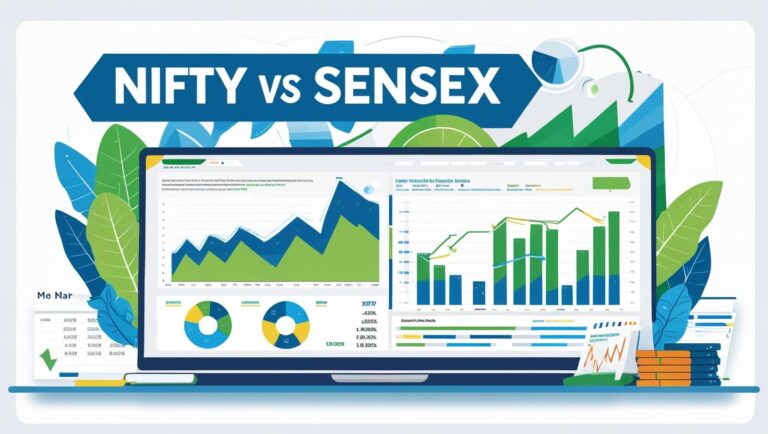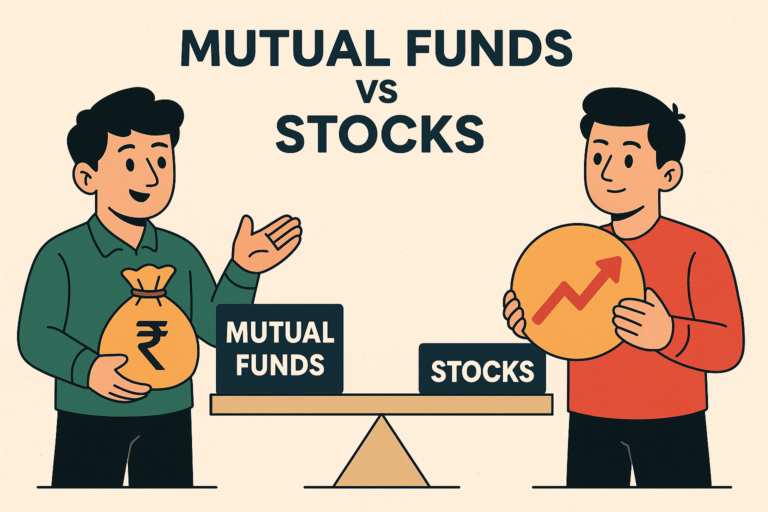Are you looking for proven strategies to get high returns in the Stock market? Then, trust me, there is no way to get a guaranteed return in the stock market. You can’t depend only on the fundamental analysis or technical analysis; you have to go deep down into the company’s Balance Sheets, Profit and Loss statements, Annual Reports, Management Analysis, and many more steps. Let’s assume that you have learn how to read deeply all this document, but what about stock market psychology, Risk Management, government support, and market trends? How can you beat all this? I’m not saying that it is impossible to get good returns in the Stock market, there are lots of examples ahead of us like: Late. Mr. Rakesh Jhunjhunwala, Mr. Vijay Kedia, Mr. Radhakrishna Damani, etc., all of them get very good returns in the stock market. If you are a serious investor then I’m damn sure that you know following them very closely. Now let’s discuss their qualifications, which help them to get this much wealth from the Stock Market.
Qualifications of our Super Investors, which help them to get huge wealth from the Stock Markets:
- Mr. Rakesh Jhunjhunwala: Rakesh Sir holds a BCom degree from Sydenham College in Mumbai. Later, he cleared the CA examination, which is held by the Institute of Chartered Accountants of India (ICAI).
- Mr. Radhakrishnan Damani : Radhakrishnan Damani sir starts his early education in Commerce Stream at the University of Mumbai. But after his first year in the he dropped his degree start working as a Stock Broker.
- Mr. Vijay Kedia ; Mr. Vijay Kedia sir also started thier early education in the field of commerce by getting B.com Degree from Culcutta Univercity.
You guys are thinking that why we talking about the educational qualifications of our Supers Investors, Answer is very simple they all are from the field of finance where they learn about reading Balance Sheets, profit and loss statements, Annual Reports Etc. So my point is if you want to predict the price movement of a stock and want to get good returns in the stock market then you also have get very much deep knowledge of finance then you also have to do degrees and courses to learn about the companies financials.
In this post we are going to learn about the some short term and long term courses and degrees which helps you get deep dive into companies financials.
Short term and Long term courses that helps you to understand the coompanies financials;
Long term courses :
- Certified financial planners (CFP)
- Chartered Financial Analysist (CFA)
- Chartered Accountant ( CA )
Short Term Courses
- Financial Modelling
- Investment Baking
- Corporate Finance
Lets discuss about all this courses about their eligibility criteria and benefits:
Certifeid Financial Planner (CFP) : The Certified Financial Planner (CFP) course is an internationally respected certification offered by the Financial Planning Standards Board (FPSB). It prepares professionals with in-depth knowledge and practical skills in financial planning, enabling them to develop effective financial strategies for both individuals and businesses. To earn the CFP designation, candidates must complete specific education requirements, pass a rigorous exam, gain relevant work experience, and commit to a strict code of ethics.
Eligibility Criteria for Certifeid Financial Planner (CFP) :
Education:
To be eligible for the CFP program, candidates must hold a bachelor’s degree from a recognized university. In addition, they must complete the required financial planning coursework set by the CFP Board.
Examination:
Candidates are required to pass three comprehensive CFP exams that test their knowledge and application of financial planning principles.
Experience:
Practical experience in the financial planning field is essential. This can be gained either under supervision or in a supervisory capacity.
Ethical Standards:
All candidates must commit to and follow the CFP Board’s Code of Ethics and Professional Conduct, ensuring integrity and professionalism in their practice.
Course Duration and Fees
The CFP program usually takes anywhere from 6 months to 2 years to complete, depending on the candidate’s pace and schedule. According to the International College of Financial Planning (ICOFP), the registration fee for the program is ₹18,000, which covers all four levels. Overall, the total cost of pursuing the CFP certification typically ranges between ₹1.5 lakhs and ₹2 lakhs, as noted by ArivuPro.
Chartered Financial Analysist (CFA) : The Chartered Financial Analyst (CFA) program is a globally respected certification designed for professionals in the investment and finance sectors. Known for its depth and rigor, the CFA course offers a thorough education in advanced investment analysis, financial strategy, and portfolio management. It is divided into three levels, each requiring candidates to pass a challenging 6-hour exam.
Key Highlights of the CFA Program:
Program Structure:
The CFA program consists of three levels—Level I, Level II, and Level III—each building on the knowledge and skills from the previous one.
Curriculum:
The course covers a broad range of topics, including ethical and professional standards, investment tools, corporate finance, financial reporting and analysis, equity and fixed income investments, derivatives, alternative investments, and portfolio management.
Exams:
Each level concludes with a 6-hour exam that tests both theoretical knowledge and practical application of the material.
Eligibility:
Candidates generally need to hold a bachelor’s degree and have at least four years of relevant work experience to enroll.
Benefits:
Earning the CFA charter can significantly boost career opportunities, helping professionals move into senior roles in areas like investment banking, portfolio and asset management, and risk management. It also provides access to a global network of finance professionals.
Here’s a rewritten, more natural and engaging version of your paragraph that reads like it was written by a human:
Chartered Accountancy (CA) : The Chartered Accountancy (CA) course in India is a prestigious professional program offered by the Institute of Chartered Accountants of India (ICAI). It’s designed to equip individuals with the expertise required to become qualified Chartered Accountants. The course is divided into three main levels—CA Foundation, CA Intermediate, and CA Final—along with a compulsory practical training phase known as Articleship.
Course Structure and Levels
1. CA Foundation
This is the entry point for students who have completed their 12th grade. It introduces the basics of Accounting, Business Law, Quantitative Aptitude, and Business Economics.
2. CA Intermediate
After passing the Foundation exam, students can register for the Intermediate level. This stage covers more detailed subjects like Advanced Accounting, Corporate and Other Laws, Taxation, and Auditing & Ethics.
3. Articleship
A key part of the CA journey, Articleship is a 3-year mandatory practical training period where students work under qualified Chartered Accountants or firms. It gives them real-world experience and professional exposure.
4. CA Final
This is the last and most advanced stage of the CA course. It includes complex subjects and requires students to clear both groups of the Intermediate level before registering.
Direct Entry Route
Graduates and postgraduates in Commerce (with at least 55% and 60% marks respectively) or those who’ve cleared the Intermediate level of the Institute of Cost Accountants of India (ICAI) or the Institute of Company Secretaries of India (ICSI) can take the Direct Entry route. This allows them to skip the Foundation level and move directly to the Intermediate stage.
Duration
Completing the full CA course—including Foundation, Intermediate, Final levels, and Articleship—usually takes about 4.5 to 5 years.
Key Highlights
- ICAI: The Institute of Chartered Accountants of India is the official governing body for the CA course.
- Exams: Held twice a year, in May and November.
- Practical Training: Articleship is a vital part of the course, providing valuable on-the-job experience.
- Career Opportunities: A CA qualification opens up a wide range of career paths in finance, taxation, auditing, consulting, and corporate management.
- Global Recognition: The CA credential is respected internationally, especially in countries that have mutual recognition agreements with ICAI.
Short term Courses :
Financial Modeling Courses: Overview, Content, Skills & Certifications
Financial modeling courses are designed to teach students how to create and analyze financial models—mathematical frameworks that reflect a company’s financial performance. These models are widely used for forecasting, valuation, budgeting, and investment analysis. The courses focus on both technical and analytical skills, with a strong emphasis on Excel.
What You’ll Learn: Course Content
Excel Proficiency
A major part of financial modeling involves mastering Microsoft Excel. Courses typically cover advanced formulas, functions, and tools needed to build robust financial models.
Financial Statement Analysis
Students learn to analyze income statements, balance sheets, and cash flow statements to gain insights into a company’s financial health.
Valuation Techniques
Courses explore key valuation methods such as Discounted Cash Flow (DCF) and comparable company analysis, helping students determine the worth of a business or investment.
Forecasting
Participants build models to project future revenue, expenses, and cash flow based on historical data and assumptions.
Scenario Planning
Training includes creating models to evaluate how changes in key variables or assumptions can impact a company’s financial outcomes.
Course Objectives
- Develop Practical Skills: Learn how to build, interpret, and apply financial models in real-world business and investment scenarios.
- Improve Decision-Making: Use financial insights to make informed budgeting, strategic, and investment decisions.
- Boost Career Opportunities: Equip yourself with skills valued in roles such as investment banking, equity research, corporate finance, and consulting.
Key Skills You’ll Gain
- Forecasting: Projecting financial performance based on data and assumptions
- Valuation: Assessing the value of companies and investments
- Scenario Analysis: Modeling outcomes under different conditions
- Financial Statement Analysis: Interpreting financial reports to understand business performance
- Excel Proficiency: Using Excel as a powerful tool for financial modeling
Popular Platforms and Certifications
- Coursera: Offers online courses and specializations from top institutions
- Corporate Finance Institute (CFI): Provides the Financial Modeling & Valuation Analyst (FMVA) certification
- BSE Institute: Runs a practical financial modeling and valuation program
- EY: Offers a certificate course in financial modeling and valuation
- FinTree: Provides financial modeling training along with placement support
Investment Baking :
Investment Banking Courses: Overview, Curriculum, Skills & Career Pathways
Investment banking courses are designed to prepare individuals for dynamic careers in the financial industry. These programs focus on core areas such as capital raising, mergers and acquisitions (M&A), financial advisory services, and investment strategies. Whether you’re a student, finance professional, or career switcher, these courses provide a strong foundation for entering high-stakes roles in banking, private equity, or asset management.
Course Highlights
Target Audience
These courses are ideal for recent graduates, finance professionals, and individuals aiming to transition into investment banking or related fields like private equity, asset management, or financial consulting.
Prerequisites
While most programs recommend a basic understanding of finance, accounting, and Excel, more advanced courses may require prior exposure to investment banking concepts or experience in financial roles.
Curriculum
Typical course topics include:
- Financial Statement Analysis
- Financial Modelling
- Valuation Techniques (e.g., DCF, comparable company analysis)
- Mergers & Acquisitions (M&A)
- Capital Markets and Deal Structuring
Duration
Course length can vary widely—from short-term certification programs lasting a few hours or weeks, to more intensive diploma or postgraduate programs spanning 6 to 24 months.
Online Flexibility
Many institutions offer online investment banking courses, providing flexibility through recorded video lectures, live classes, interactive assignments, and real-world case studies.
Career Opportunities
Completing an investment banking course can open doors to a range of roles, such as:
- IPO Underwriter
- Private Wealth Manager
- M&A Analyst
- Equity Research Associate
- Mutual Fund Advisor
Top investment banks and financial institutions actively recruit certified candidates who demonstrate strong analytical and modeling skills.
Specializations Available
Depending on your interests and career goals, you can specialize in:
- Capital Markets
- Equity and Debt Advisory
- Investment Strategy
- Risk and Asset Management
Skills You’ll Develop
- Financial Modeling
- Valuation and Investment Analysis
- M&A and Deal Structuring
- Capital Markets Strategy
- Risk Management
Placement Support
Some programs also offer placement assistance, helping students connect with hiring firms and recruiters in the investment banking industry.
Here’s a rewritten, more conversational and polished version of your content that reads naturally and professionally:
Corporate Finance :
Corporate Finance Courses: A Comprehensive Guide to Skills, Topics, and Career Impact
Corporate finance courses are designed to help individuals understand and manage a company’s financial operations effectively. From analyzing financial statements to making strategic investment decisions, these courses equip learners with the tools needed to thrive in finance-focused roles. Whether you’re working in a corporate finance department, part of an investment firm, or an entrepreneur aiming to manage your company’s finances better, these courses provide valuable insights.
What You’ll Learn: Key Topics in Corporate Finance Courses
1. Financial Statements
Understanding balance sheets, income statements, and cash flow statements is essential for assessing a company’s financial health and performance.
2. Capital Budgeting
Learn how to evaluate and prioritize long-term investments by analyzing expected returns and risks.
3. Capital Structure
Explore how companies finance their operations using a mix of debt and equity, and understand the impact of financial leverage on performance.
4. Valuation Techniques
Master methods to assess the value of a company or its assets—crucial for investment decisions, mergers, and strategic planning.
5. Financial Analysis
Use tools like ratio analysis, trend analysis, and cash flow analysis to evaluate performance and forecast future outcomes.
6. Risk Management
Understand how to identify, assess, and mitigate financial risks—such as credit, market, and operational risks.
7. Working Capital Management
Learn to manage a company’s short-term assets and liabilities to ensure day-to-day liquidity and operational efficiency.
8. Mergers & Acquisitions (M&A)
Advanced courses often include financial strategies behind M&A, covering valuation, deal structuring, and due diligence.
9. Corporate Governance
Gain insight into the systems and processes that ensure transparency, accountability, and ethical financial practices within organizations.
10. Financial Modeling
Develop practical skills in building Excel-based models to forecast performance, evaluate scenarios, and support financial decision-making.
Who Should Take Corporate Finance Courses?
- Finance Professionals
Ideal for those in accounting, financial planning, analysis, and investment roles looking to upgrade their expertise. - Business Managers
Gain financial literacy to make more informed decisions that align with your organization’s financial goals. - Entrepreneurs & Business Owners
Understand key financial concepts to manage your company’s finances and plan for sustainable growth. - Students
Especially useful for those pursuing degrees in finance, accounting, economics, or business management. - Finance Enthusiasts
Anyone interested in gaining a clearer picture of how corporate finance works—including for managing personal investments—can benefit.
Where to Find Corporate Finance Courses
Online Learning Platforms
Websites like Coursera, edX, and Udemy offer a range of flexible courses—many of which include certificates.
Universities and Colleges
Top institutions and business schools offer both degree programs and standalone courses in corporate finance.
Professional Bodies
Organizations like the Chartered Financial Analyst (CFA) Institute provide specialized finance certifications, including topics in corporate finance.
Dedicated Finance Institutes
Platforms such as the Corporate Finance Institute (CFI) offer focused, career-oriented programs with real-world case studies and financial modeling practice.
📚 Comparison Table: Long-Term vs Short-Term Courses
| Feature | Long-Term (CA, CFA, CFP) | Short-Term (Modeling, IB, Corporate Finance) |
|---|---|---|
| Duration | 2–5 Years | 1 week – 6 months |
| Certification Body | ICAI, CFA Institute, FPSB | CFI, BSE Institute, Coursera, etc. |
| Job Opportunities | Broad financial careers | Targeted roles in finance & investment |
| Cost | ₹1.5 – ₹3 lakhs | ₹5,000 – ₹50,000 |
| Depth of Knowledge | In-depth & rigorous | Practical & application-focused |
| Entry Requirement | Bachelor’s degree | Varies (some open to beginners) |
💡 Final Thoughts: Education Is Your Best Investment
Success in the stock market isn’t about luck—it’s about knowledge, discipline, and preparation. Like the great investors before us, you too can build wealth by:
- Studying financial concepts deeply
- Pursuing quality certifications
- Analyzing companies fundamentally
- Understanding market psychology & risk
- Constantly learning and evolving
“Risk comes from not knowing what you’re doing.” – Warren Buffett
Take that first step. Pick a course, commit to learning, and build the knowledge foundation that long-term investing success is built on.
Conclusion
The stock market is not a place for guesswork—it’s a field that rewards those who are prepared, informed, and disciplined. While success stories like Rakesh Jhunjhunwala and Vijay Kedia may inspire us, what truly sets them apart is their deep understanding of finance and relentless pursuit of knowledge.
If you’re serious about achieving good returns, start by investing in yourself. Whether it’s a long-term professional degree like CA or CFA, or short-term courses in financial modeling or investment banking, every bit of financial education brings you one step closer to making smarter, more confident investment decisions.
Remember, building wealth in the stock market isn’t about shortcuts—it’s about mastering the process. So choose your learning path, stay consistent, and let your knowledge compound just like your investments.
✅ Ready to Take the First Step?
Start by exploring one course that aligns with your goals—whether it’s a certification or a full-time program. The best investment you can ever make is in your own learning.
👉 Drop a comment below or reach out if you need help picking the right course!





Pingback: Top 10 Best-Rated Stock Brokers in India 2025